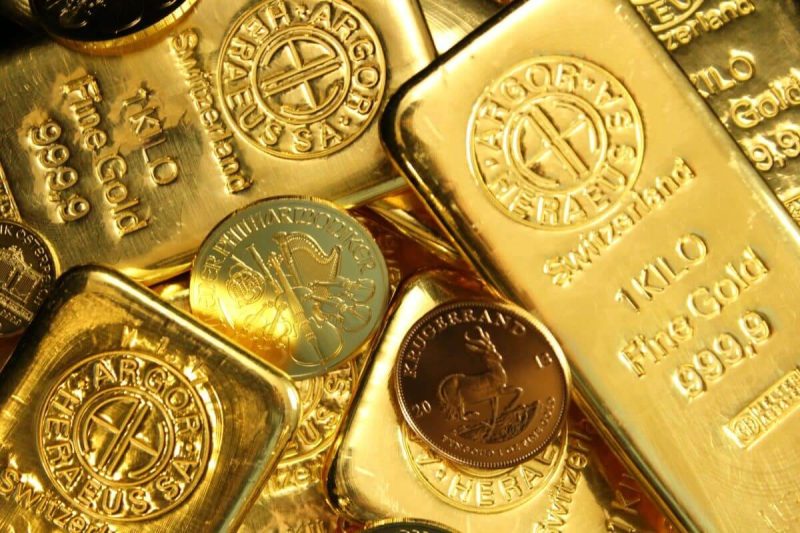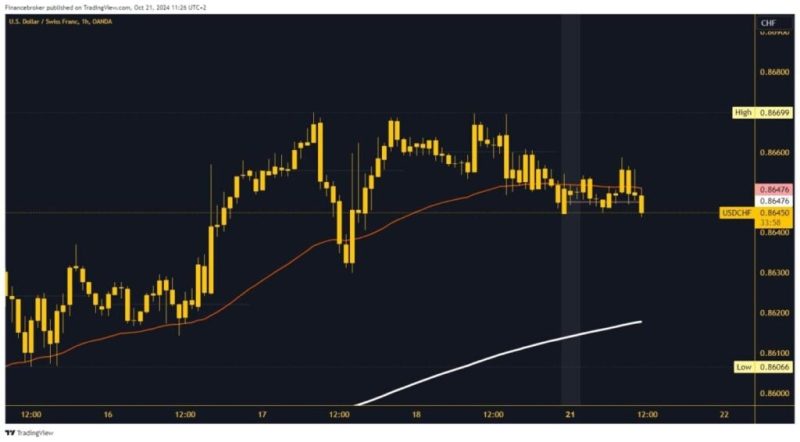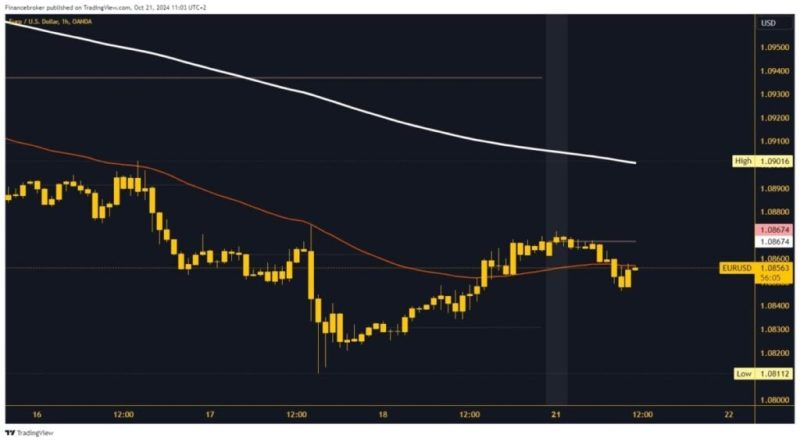Gold Dips to $2,285 Amid Fed Rate Hike Anticipation

Gold Dips to $2,285 Amid Fed Rate Hike Anticipation
Gold Prices Drop: Spot gold fell to $2,285.19, dipping below the critical $2,300 level amid hawkish Fed expectations.
Fed’s Influence: Anticipation of continued high-interest rates decreases gold’s attractiveness, impacting its price.
Broader Commodities Impact: Similar trends were seen in other metals, with copper also declining due to a strong U.S. dollar.
Gold prices experienced a notable decline in Asian markets on Wednesday, extending the significant losses recorded overnight. This drop sent the yellow metal below a critical support level amidst anticipations of a hawkish stance from the Federal Reserve later in the day. Traditionally viewed as a safe haven during times of uncertainty, gold has seen its appeal diminish due to a de-escalation of global geopolitical tensions and the shifting dynamics of monetary policy. The spot gold price fell slightly by 0.1% to $2,285.19 an ounce. Gold futures for June delivery decreased by 0.3% to $2,295.25 an ounce. This downturn occurred after spot prices dipped below the closely-watched $2,300 threshold on Tuesday, leaving investors wary of potential further declines pending more definitive interest rate cues from the U.S. central bank.
Federal Reserve Decisions and Their Effect on Gold Prices
As the Federal Reserve concludes its two-day meeting, all eyes are on Fed Chair Jerome Powell, who is expected to maintain a hawkish outlook in light of recent robust inflation data. A higher-than-anticipated reading on the employment cost index for the first quarter has reinforced this perspective. Consequently, traders have adjusted their expectations, moving away from the prospect of early rate cuts.
The central bank should now start reducing rates by September, if at all. Such a scenario of sustained high interest rates is unfavourable for gold investment, as it raises the opportunity cost associated with holding non-yielding bullion. This adjustment in rate cut expectations has contributed significantly to gold’s price retreat from its April record highs. Similarly, other precious metals like platinum and silver also registered losses on Wednesday, with platinum futures dipping by 0.2% to $943.95 an ounce and silver futures falling by the same margin to $26.598 an ounce.
Broader Impact on Commodities: A Look at Copper
The repercussions of these shifts in monetary policy expectations and a strengthening U.S. dollar are not confined to precious metals alone. Industrial metals like copper have also felt the impact. Following a stellar performance in April, copper prices have receded from two-year highs. A robust dollar and profit-taking activities by investors are driving this decline. On the London Metal Exchange, three-month copper futures declined by 0.8% to $9,910.0 a ton. Similarly, one-month futures saw a reduction of 0.3% to $4.5285 a pound. Consequently, this trend underscores the broad-based impact of U.S. monetary policy and currency strength on global commodity markets. It highlights the interconnected nature of financial assets in a globalized economy.
As the market continues to adjust to the evolving economic landscape, the movements in commodity prices will likely become more significant. Consequently, these changes will offer valuable insights into the broader implications of Federal Reserve policies and investor sentiment. These shifts serve as a crucial indicator of how macroeconomic factors are shaping investment strategies across different asset classes.
The post Gold Dips to $2,285 Amid Fed Rate Hike Anticipation appeared first on FinanceBrokerage.




